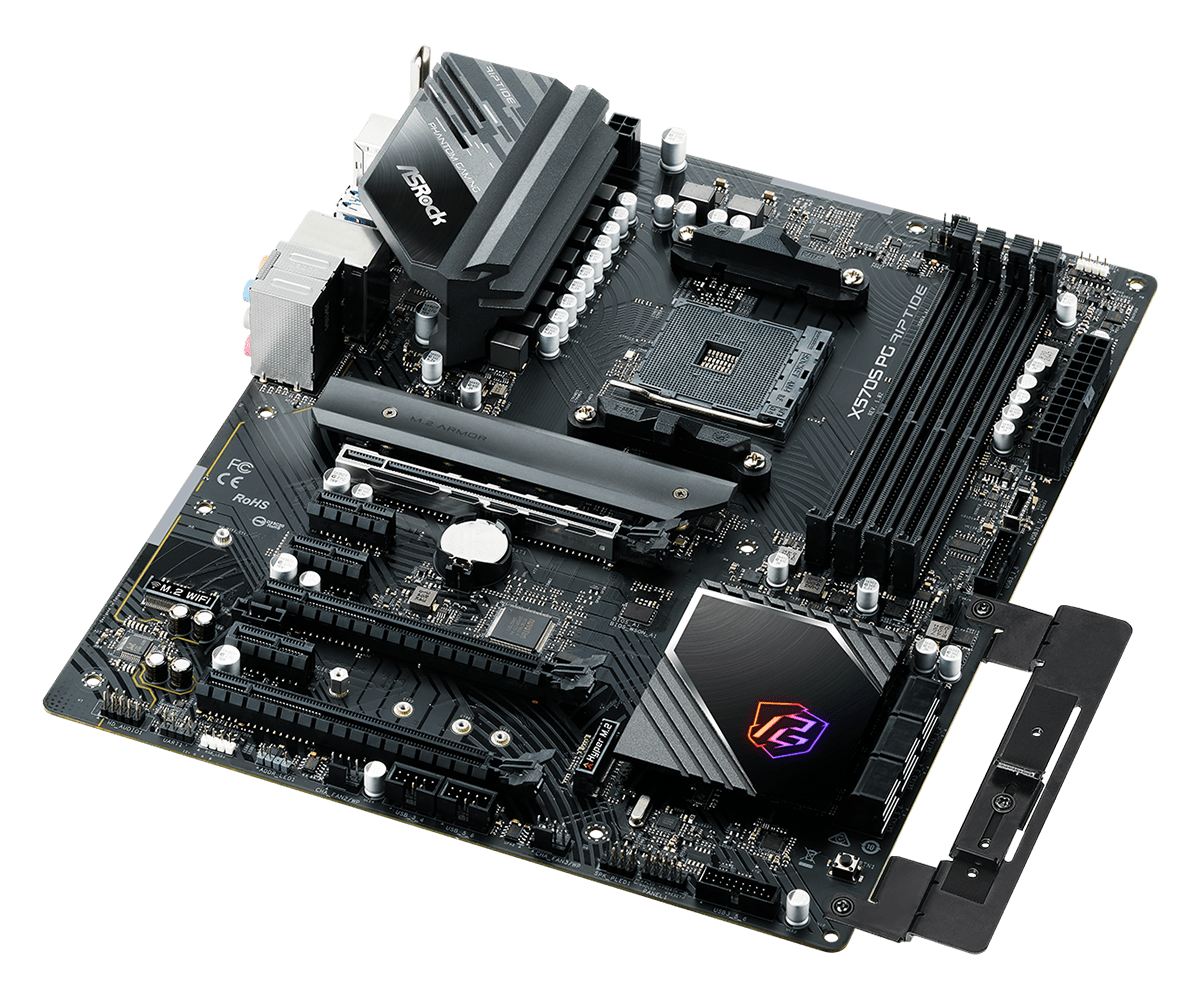Asrock announced a new motherboard lineup called the Riptide series, and with it comes two brand new boards for AMD Ryzen CPUs, the X570S PG Riptide and the B550 PG Riptide. These motherboards are an off-shoot of the Phantom Gaming series, designed for gamers who use their systems for everyday use.
The most striking feature of both Riptide motherboards is the addition of a GPU anti-sag bracket built right into the motherboard itself. The bracket is installed right next to the chipset and SATA ports, and will prevent your graphics card from sagging in the front, where there’s the least amount of support.
The bracket is a nice feature to have, with how large graphics cards are getting these days. Many of the latest triple-slot graphics cards weigh around 1.5kg or more, including some of ASRock’s own models. Due to the bracket being situated behind the graphics card, this should give PC builders a very clean look, with the bracket tucked behind the graphics card and out of sight.
Speaking of aesthetics, both boards are very stealthy with a silver and black appearance. The only sight of color is the bright orange and purple Asrock logo on the chipset, which can easily be hidden with a large enough graphics card.
Other features include a 10 phase power delivery system, up to 4933MHz DDR4 memory support, and a special feature ASRock is calling ‘Lightning Gaming Ports.’ These ports are designed to give gamers the lowest latency possible for their keyboard and mouse.
We don’t know what kind of magic ASRock is doing to improve latency on these specific USB ports, but we believe it ensures you are plugging your mouse and keyboard directly into the USB ports wired to the CPU. This will allow for the lowest latency possible, as most of your USB ports are usually connected through the chipset.
Another interesting note is this is Asrock’s first-ever X570S motherboard, and it’s coming to the Riptide series. But we expect ASRock’s other lineups will get the X570S treatment soon. The biggest feature coming to X570S is the ability to run the chipset without a fan. This is great for reliability and acoustics, and something we’re excited to see coming back to AMD’s flagship chipset.
